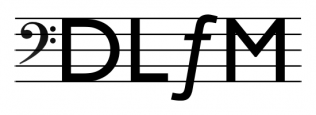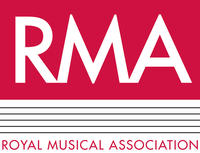8th International Conference on Digital Libraries for Musicology
CfP 8th International Conference on Digital Libraries for Musicology, In association with the annual conference of IAML, the International Association of Music Libraries, Archives and Documentation Centres, 28-30 July 2021
The Digital Libraries for Musicology (DLfM) conference presents a venue for those engaging with Digital Library systems and content in the domain of music and musicology. It provides a forum for musicians, musicologists, librarians, and technologists to share findings and expertise.
PROGRAMME
The DLfM preliminary schedule can now be found here: https://dlfm.web.ox.ac.uk/2021-programme
Registration
This year, there is no fee for registration, however registration remains mandatory to access the conference. Attendance at joint sessions is possible with registration for either IAML or DLfM. Registration is now open for booking.
Gather.Town
We will be using the online platform Gather.Town for our joint DLfM-IAML poster session. Please visit here for instructions: https://dlfm.web.ox.ac.uk/gathertown-user-instructions
CALL FOR PAPERS AND POSTERS
The 8th DLfM conference, to be held online, welcomes contributions related to any aspect of digital libraries and musicology, including topics related to musical archiving and retrieval, cataloguing and classification, musical databases, special collections, music encodings and representations, computational musicology, or music information retrieval (MIR).
This year’s conference will be held in association with the online IAML Congress ( https://www.iaml.info/congresses/2021-online ), and will feature a joint paper session as well as a joint poster session. In bringing these two conferences together we aim to encourage new collaborations and foster larger group discussions surrounding prominent issues in the digital humanities. This year’s theme of “bridging the gap” is designed to bring together scholars working across the niche subfields of digital libraries and humanities, computational musicology, and MIR with the aim of broadening the understanding of the needs, obstacles, and optimal outcomes within each of these subfields in the DLfM community, and how outcomes in one area can best be applied to (or served by) another.
The conference strongly encourages papers and posters that address this year’s theme, however, we welcome all papers addressing all traditional topics that fall under the scope of DLfM. Specific examples of topics traditionally covered at DLfM can be found below. Proceedings will be published in ACM ICPS as an Open Access publication.
In light of the challenges surrounding conference planning and travel during a pandemic, this year’s DLfM conference will be entirely virtual. The conference organizers are striving to make an engaging and interactive conference while we patiently and eagerly anticipate a return to in-person conferences in 2022.
IMPORTANT DATES (AoE)
-
Poster abstract submission deadline: April 26th, 2021
- Abstract submission deadline (extended): April 5, 2021
- Paper submission deadline (extended): April 12, 2021
- Notification of Acceptance: May 3, 2021
- Camera-ready submission deadline: June 13, 2021
- Conference: July 28-30, 2021
SUBMISSIONS
Poster submissions
An abstract of the proposed poster of no more than 500 words must be submitted by April 26th, 2021. Abstracts are to be emailed to: dlfm2021@easychair.org Details for poster formats will be updated to the DLfM website soon, and instructions will be emailed to authors following the review period. Landscape orientation is strongly encouraged for ease of online viewing. Abstracts will be reviewed and decisions returned by May 3rd, 2021. Final copies of posters must be ready to upload no later than July 12, 2021.
Proceedings track submissions
We invite full papers (up to 8 pages excluding references) or short papers (up to 4 pages excluding references). An abstract of the proposed paper must be submitted to DLfM via EasyChair by March 29 April 5, 2021. The full papers are expected to be submitted to DLfM on EasyChair and following the ACM template by April 5 April 12, 2021. Authors will need to follow carefully the instructions for formatting. The MS Word template is located here.
The LaTeX template is here. For LaTeX + Overleaf users, an online template is available here (use the ACM Conference Proceedings template).
Historically, LaTex versions have been easier to process in camera-ready versions. Therefore, we encourage all authors to use the LaTeX (or LaTeX + Overleaf) template if possible. Page limits for submitted papers apply to all text, but exclude the bibliography (i.e., references can be included on pages over the specified limits).
Authors of accepted paper submissions are expected to submit corrected, camera-ready copies, which must be received by June 13, 2021. (See IMPORTANT DATES). Papers for each track will be peer reviewed by 2-3 members of the programme committee. For accepted paper submissions, at least one author must register for the conference (as a presenter) by June 13th, 2021.
All submitted papers must:
- be written in English;
- contain author names, affiliations, and e-mail addresses;
- be formatted according to the appropriate ACM template;
- be in PDF format, and formatted to A4 size.
An additional call for (unpublished) poster presentations will follow.
Submission link: https://easychair.org/conferences/?conf=dlfm2021
Contact email: dlfm2021@easychair.org
BACKGROUND
While Digital Libraries have long offered facilities to provide multimedia content, the requirements of systems for library music are complex. The many forms taken by musical data, the needs for connections between these, and the importance of scholarly and historical contextual information all require special care to support meaningful engagement with the materials.
The Digital Libraries for Musicology (DLfM) conference presents a venue specifically for those working on, and with, Digital Library systems and content in the domain of music and musicology. This includes Music Digital Library systems, their application and use in musicology, technologies for enhanced access and organisation of musics in Digital Libraries, bibliographic and metadata for music, intersections with music Linked Data, and the challenges of working with the multiple representations of music across large-scale digital collections such as the Internet Archive and HathiTrust.
DLfM focuses on the implications of music for Digital Libraries and Digital Libraries research, especially when pushing the boundaries of contemporary musicology through the application of techniques from more technologically-oriented fora such as ISMIR and ICMC. This, the eighth DLfM conference follows previous conferences in Montreal, The Hague, Paris, New York, Shanghai, Knoxville and London. We are proud to introduce the conference this year as a semi-integrated event with the annual International Association of Music Libraries (IAML) conference, through which we hope to bring together diverse topics and methods in digital humanities, music digital library systems, as well as MIR, as applied to musicological research.
CONFERENCE OBJECTIVES
- to act as a forum for reporting, presenting, evaluating and disseminating work combining technology with musicology through Digital Library systems;
- to critically evaluate the operation of Music Digital Libraries and the applications and findings that flow from them;
- to re-evaluate existing Music Digital Libraries, particularly in light of the transformative methods and applications emerging from musicology, large collections of both audio and music-related data, ‘big data’ methods, and MIR;
- to explore how digital libraries and digital musicology can combine to offer richer online access to online music collections;
- to set the agenda for work in the field to address these new challenges and opportunities.
TOPICS
Topics of interest include, but are not limited to:
- Building and managing digital music collections
- Optical music recognition
- Information literacies for Music Digital Libraries
- Data quality assessment
- Access, interfaces, and ergonomics
- Interfaces and access mechanisms for digital music content
- Identification/location of music (in all forms) in generic Digital Libraries
- Techniques for locating and accessing music in very large Digital Libraries (e.g. HathiTrust, Internet Archive)
- Mechanisms for combining multi-form music content within and between Digital Libraries and other digital resources
- User information needs and behaviour for Music Digital Libraries
- Musicological knowledge
- Music data representations, including manuscripts/scores and audio
- Applied MIR techniques for ditigal music content or analysis
- Computational and systematic approaches to musicological analysis
- Extraction of musical concepts from symbolic notation and/or audio data
- Metadata and metadata schemas for music
- Application of Linked Data and Semantic Web techniques to Music Digital Library content, access, or organisation
- Ontologies and categorisation of musics and music artefacts
- Improving data for musicology
- Musical corpus-building at scale
- Enriching public access to music, music-cultural, and music-ephemera material online
- Digital Libraries showcasing need or support of musicology and/or other scholarly domain
- Digital Libraries combining resources for musicology (e.g. combining audio, scores, bibliographic, geographic, ethnomusicology, performance, etc.)
CONFERENCE ORGANIZATION
Programme Chair
Claire Arthur, Center for Music Technology, Georgia Tech
General Chair
David Lewis, Goldsmiths University of London
Proceedings Chair
Néstor Nápoles López, McGill University
Programme Committee
Alessandro Adamou, The Open University
Islah Ali-McLachlan, Birmingham City University
Houman Behzadi, Marvin Duchow Music Library, McGill University
Marnix van Berchum, Utrecht University
Jorge Calvo Zaragoza, Universidad de Alicante
Estefanía Cano Cerón, Fraunhofer Institute for Digital Media Technology IDMT
Rafael Caro Repetto, Universitat Pompeu Fabra
Richard Chesser, British Library
Kahyun Choi, Indiana University Bloomington
Magdalena Chudy, Institute of Art, Polish Academy of Sciences
Nathaniel Condit-Schultz, Georgia Institute of Technology
Rachel Cowgill, University of York
Julie Cumming, McGill University
María Teresa Delgado-Sánchez, Biblioteca Nacional de España
Jürgen Diet, Bavarian State Library
Loukia Drosopoulou, British Library
Ichiro Fujinaga, McGill University
Francesca Giannetti, Rutgers University
José Manuel Iñesta, Universidad de Alicante
Charles Inskip, University College London
Kjell Lemström, University of Helsinki
Cynthia Liem, Delft University of Technology
Ewa Łukasik, Institute of Computing Science, Poznan University of Technology
Cory McKay, Marianopolis College and Centre for Interdisciplinary Research in Music Media and Technology
Joshua Neumann, University of Florida
Terhi Nurmikko-Fuller, Australian National University
Kevin Page, University of Oxford
Alastair Porter, Universitat Pompeu Fabra
Laurent Pugin, RISM Digital
David Rizo, Universidad de Alicante
Sertan Şentürk, Kobalt Music Group
Xavier Serra, Universitat Pompeu Fabra
Martha Thomae, McGill University
Leigh VanHandel, University of British Columbia
Raffaele Viglianti, Maryland Institute for Technology in the Humanities
Gabriel Vigliensoni, McGill University | Goldsmiths University of London





